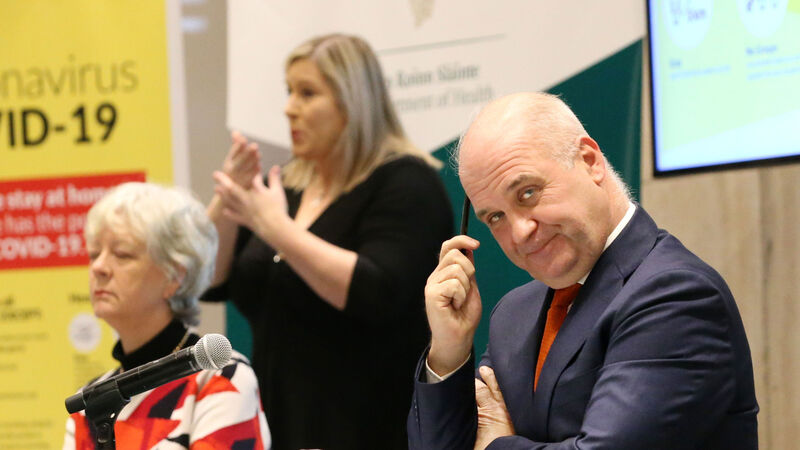ICU may have to ration care among patients with best chance of survival

Dr Tony Holohan, the chief medical officer, at last night's briefing update on Covid-19. Picture: Sasko Lazarov/RollingNews.ie
Intensive care staff in West Cork may soon have to 'ration' care among those who have the best chance of survival.
As Ireland registers the highest proportion of Covid-19 cases in the world and the health system is put under increasing pressure, Dr Brian Carey, a consultant physician at Bantry General Hospital, has issued a warning to GPs and other medical staff in the Bantry area, saying that the situation is changing rapidly and they may have to make difficult decisions to treat patients in ICU who are the most likely to survive.










